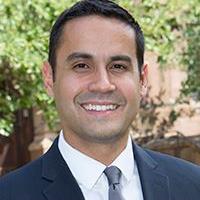Pardon any misspellings, lackluster syntax, or occasional split infinitive in this brief article. I am working with a bit of a sleep deficit.
About a month ago, we welcomed a second child into our family and started the process again of regular feedings, diaper changes, and brief bursts of sleep.
I imagined that the second time around, things would be easier in some ways or at least more familiar. My diaper changing skills have certainly improved and holding a fragile newborn is not as unnerving this time. However, I have quickly realized that this experience, while familiar, is also entirely new.
Memories have certainly faded, especially when they were created in a sleepy stupor. I did not remember entirely the weariness that accompanies late nights and early mornings or the anxiety of new responsibility mixed with a new but profound love. More importantly, I am struck by how different infants can be. Despite the total lack of head control and indecipherable cries, infants express their burgeoning personalities from day one. My son and my daughter look incredibly alike, but their personalities are already incredibly different.
Thus, this new child brought a new but familiar experience to us all. We both knew and did not know what to expect. We are both experienced and mere novices. We have seen this second experience with fresh eyes.
Fresh eyes are a gift to the preacher. If we are honest with ourselves, we can visit and revisit the Bible so often that these once vibrant stories appear stale to us. Can we possibly squeeze yet another drop of meaning from this parable or that epistle? If we are honest with ourselves, we will confess that at times the sermon is a burden to bear rather than an opportunity to proclaim the good news.
Yet, there are those precious moments when the Scriptures comes to life, when a previously unnoticed detail is suddenly inescapable, or a powerful experience reshapes how we have always read a particular story. There are those precious moments when those few minutes we are given by the people of our churches are transformative, inspiring, and empowering. There are those precious moments when words flow easily and powerfully.
Sometimes the familiar of reading and proclaiming, interpreting and teaching become entirely new. Sometimes the unruly texts of Scripture meet a ripe moment in our lives, and we can see and proclaim them anew.
But how do we keep our gaze clear? How do we read the biblical texts in fresh ways that are authentic to our communities? How do we communicate the old but good story of Christ Sunday after Sunday with vigor and passion? How can we refresh our homiletical eyes?
The recent birth of our son reminded me of a vital lesson. The familiar so often masks a new experience. Under the seeming repetitiveness of life lies the vibrancy of the Spirit which makes all things new. But how can we reveal this vibrancy in the midst of monotony?
Read fiction. Novelists can open our imaginations. Read poetry. Poets can remind us that a mere handful of carefully selected words can stir us. Watch some excellent television. Television doesn’t always rot your brain but can transport us to a different place and time. For that matter, watch some terrible television. Sometimes our brains need a break, a vacation from the life of the mind.
Travel both near and far. Experiencing a new culture and place far from home will shine a new light on our quotidian lives. But even dislocating our study and work locally can make an incredible difference. Where we sit can so often help determine what we read.
Spend time with others. Our sisters and brothers are our best teachers and most powerful muses. Spend time in solitude. The din of the world around us can muffle our own creativity, especially when our work requires us to speak and listen nearly constantly.
Fresh eyes can be had both accidentally and purposefully. We can relish those unexpected moments of insight but also nurture a posture towards life that expects to find the extraordinary among the ordinary. Simply put, fresh eyes are a gift to the preacher and to those we are charged to shepherd.

